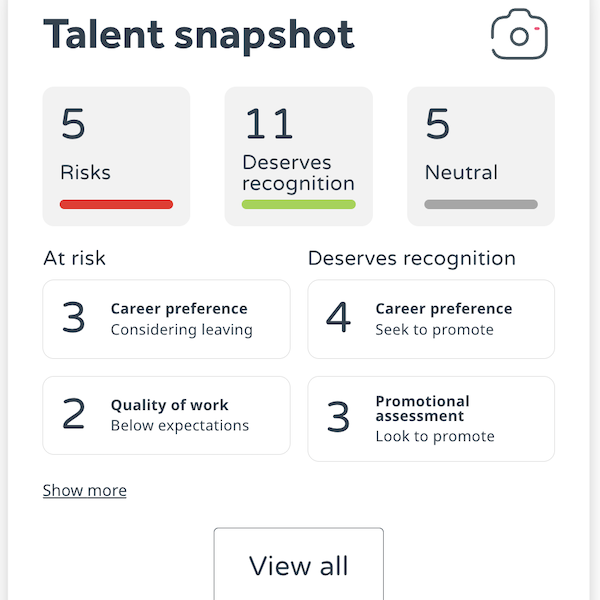Glassdoor, one of the world’s largest recruitment sites, has just announced the winners of its annual Employees’ Choice Awards honouring the 50 best places to work in the UK in 2019. Winners are determined by employees who have completed anonymous feedback forms. Employee ratings say a lot about the culture of these companies, which range from SMEs to large corporates.
Employee satisfaction is a strong indicator of business performance. That’s the latest finding from research conducted by Norwich Business School and commissioned by Glassdoor.
The study “Employee Satisfaction and Corporate Performance in the UK” involved analysing 35,231 employee ratings from 164 large companies on Glassdoor between 2014-2017. The research concluded ‘a significant positive relationship between employee satisfaction and firm profitability.’
Employee satisfaction is a direct reflection of the culture in any business. Motivated, happy employees engaged in their work are more productive, hence the link between employee satisfaction and profitability.
In this blog, we take a closer look at Glassdoor’s company rating system and explore the relationship between employee ratings and business culture.
The Glassdoor employer rating system
Company ratings on Glassdoor are determined by employee feedback and are calculated using a proprietary ratings algorithm, which places emphasis on the most recent reviews. This ensures ratings are calculated using the freshest data. The anonymous feedback forum distils scores into an easy, five-star scale:
- 50 Employees are “Very Dissatisfied”
- 51 – 2.50 Employees are “Dissatisfied”
- 51 – 3.50 Employees say it’s “OK”
- 3.51 – 4.00 Employees are “Satisfied”
- 4.01 – 5.00 Employees are “Very Satisfied”
More about Glassdoor
Glassdoor is the world’s biggest recruitment site. As well as advertising millions of jobs, the site offers job hunters a wealth of information from salary information to interview tips and insider information on interview questions.
One of Glassdoor’s most revolutionary contributions to workplace transparency is their growing database of company reviews. Unlike other job sites, Glassdoor enables employees to anonymously review the businesses they currently work for or have worked for in the past.
Is reliability a problem?
Perhaps the biggest criticism of Glassdoor’s review system is the reliability of sources. While many honest reviews are recorded, some critics argue that employees are being forced to write positive reviews, paid to write positive reviews, or worse still that HR people are writing the reviews to skew the results in a more favourable direction.
It is actually impossible to determine if reviews are genuine or not. Anyone can post on Glassdoor at anytime with no verification that they actually worked at the Company they are reviewing.
However, isn’t that the case with many surveys? And where else can employees have their say about poor employers? As long as potential employees don’t use Glassdoor as their only research resource, it can add a healthy bit of realism to the picture of potential employers.
Another metric for employees to look out for is the eNPS (Employee Net Promoter System) scores. These scores can give an overview of employee engagement and an indication of a strong company culture. Businesses with a high eNPS score show a culture where employees would happily recommend the company as a good place to work to family and friends.
A further aspect of reliability to consider is the fact that anyone can start reviews for a company without permission to set up an account. It leaves the system wide open for dirty tricks by rivals trying to trash competition.
Are employee surveys a good idea?
Employers can learn a lot from employee ratings. Knowing how your employees truly feel is the key to improving employee engagement and working towards better performance. Employee surveys give your employees the chance to be heard – a platform that is easily lost in the day-to-day working environment.
Employee engagement surveys are the best forum for honest feedback from your employees about your business. Read our white paper on considerations you need to make before designing your own employee engagement survey and why an employee engagement survey should not be anonymous.
Perhaps the facts about who uses employee surveys say the most. Most successful businesses use them. Businesses with poor cultures don’t.
What do employee ratings say about your business culture?
Love them or hate them, Glassdoor ratings are being used by potential employees to find businesses they feel happy to work for. The culture of your business is exposed in your Glassdoor rating and how you fare could be a turn on or turn off to potential talent.
Whatever you might think about the reliability of the Glassdoor ratings, they do give some insight into company culture. For conspiracy theorists, sorry, but there are way too many to have been churned out by a fraudster. For sure there may be some, but you can usually tell from the comments the likelihood of authenticity.
As well as the three main metrics – company rating, recommend to a friend, and CEO approval rating, Glassdoor covers a bundle of other ratings, including culture and values, work/life balance, senior management, benefits, and career opportunities.
Christmas (and New Year) is an important time for recruitment. It’s when many employees pledge to turnover a new leaf and make a career move. Businesses too tend to focus on recruitment in the new year when new budgets kick in.
In order to attract the best talent, businesses would be wise to think about how their employees are rating them.

